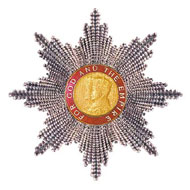Charity workers and scientists honoured by the Queen

Two charity workers received MBEs for services to animal welfare.
Numerous charity workers and scientists have been recognised for services to animal health and welfare in the Queen's New Year's Honours 2015, including Professor Venugopal Nair - head of the Avian Viral Diseases Programme at the Pirbright Institute.
Professor Nair was awarded an OBE for his involvement with the programme, which is currently focused on viruses that cause avian influenza, infectious bronchitis and Marek's disease. Working in partnership with vaccine producers, the project aims to develop more effective vaccines.
The founder of The Swan Sanctuary in Shepperton was one of two charity workers to receive an MBE - Dorothy Beeson was recognised for her work rescuing and rehabilitating swans.
Anne Owen, founder of the North Clwyd Animal Rescue Centre also received an MBE for services to animal health and welfare.
Among those to receive BEMs were:
- Valerie Margaret Allen - for voluntary services to Rider and Equine Safety
- Ruth Boyes - for services to the charity Pets as Therapy
- Lance Cruse - for services to the protection of endangered species in the course of his work as a Border Force officer
- Patricia Anne Dobbin and Louise Greer - for services to the charity Riding for the Disabled
- Elizabeth Edwards, a research scientist at the John Innes Centre and volunteer for the Norfolk Wildlife Trust - for services to the environment and the public understanding of science
- Trevor Llewellyn Richards, lately capital project liaison officer at the University of Cambridge School of Clinical Medicine - for services to biomedical research and the welfare of animals in research
Image Wikimedia Commons/Robert Pummel/CC BY 2.5



 The Greyhound Board of Great Britain has published new vaccination guidance, with all greyhounds registered from 1 January, 2027 required to have the L4 leptospirosis vaccination, rather than L2.
The Greyhound Board of Great Britain has published new vaccination guidance, with all greyhounds registered from 1 January, 2027 required to have the L4 leptospirosis vaccination, rather than L2.